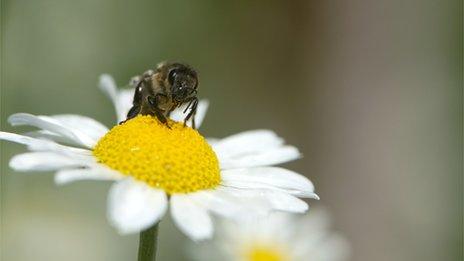Flea beetle: Farmers fear crop 'decimation' after pesticide ban
- Published
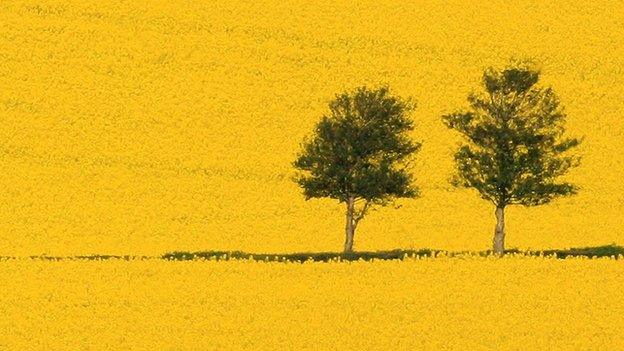
The tiny beetle lays its eggs in the soil and can severely damage crops such as rapeseed
Farmers are warning crops are being "decimated" because of an EU ban on a pesticide.
Rapeseed crops, which cover 15% of Nottinghamshire's farmland, are already showing signs of severe damage from the flea beetle, experts say.
The EU ban on neonicotinoids was imposed last year but the first crops to be grown since then could be "completely wiped out", farmers say.
The ban aims to protect bees from damage caused by the pesticides.
Almost 24% of England's rapeseed is produced in the East Midlands, according to government statistics.
The National Farmers Union (NFU) is worried that 45% of the crop in the region has already been damaged by the beetle.
The neonicotinoid is commonly used to coat the seeds of oilseed rape and other brassica crops such as cabbage, Brussels sprouts and broccoli.

Flea beetle
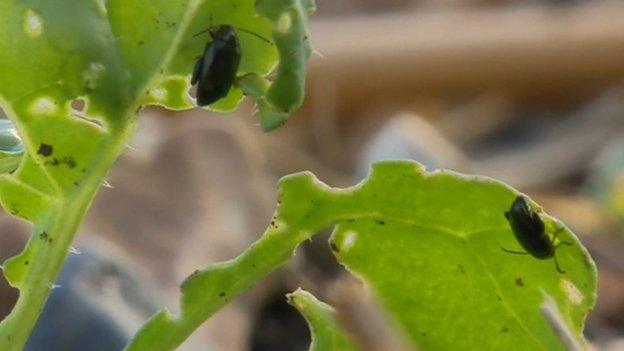
The bug is much smaller than a ladybird - about the size of a pinhead
Attacks leafy plants in the brassica family including cabbage, Brussels sprouts and rapeseed
Lays eggs underneath plants in the soil, not on the leaves
Affected plants are peppered with holes and look like they have been "hit by a shotgun"

Farmer John Charles-Jones, who has 120 acres of oilseed rape in Woodborough near Nottingham, said: "Leaves on the crop have been chewed off completely - looks like damage from slugs but I am confident this is flea beetle that is causing the damage.
"If the flea beetles weren't controlled, the chances are they would completely wipe the crop out - it is as serious as that."
In a statement, the European Commission said: "The ban on the use of three neonicotinoid insecticides is based on independent scientific advice by the European Food Safety Authority which identified 'high acute risks' for bees.
"Basically, this is about human and animal health and if science shows those are at risk - as it does in this case - that must take precedence over economic considerations."
But, NFU spokesman Simon Fisher said: "We need an urgent review of the EU ban before next year's planting season.
"We don't think the appropriate scientific research has been applied to this product and we are facing a multi-million pound loss as a result of this ban."
The EU has instigated a two-year moratorium, external on the use of the chemicals on flowering crops. The UK was one of eight nations that opposed the ban.
- Published9 July 2014
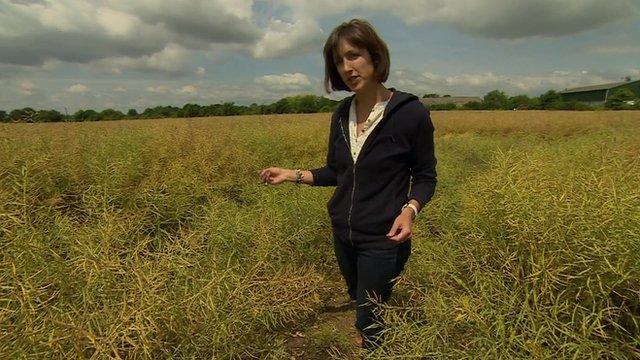
- Published9 July 2014
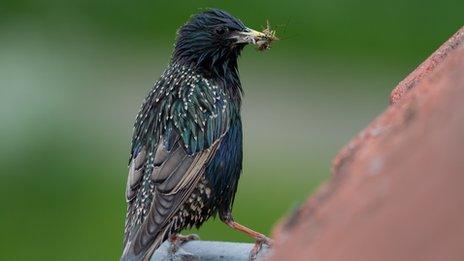
- Published29 April 2013
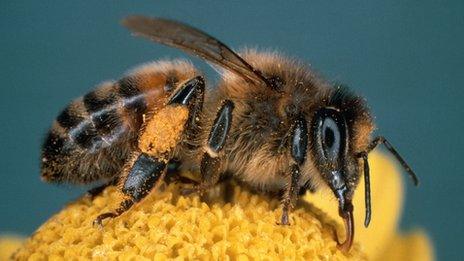
- Published24 June 2014
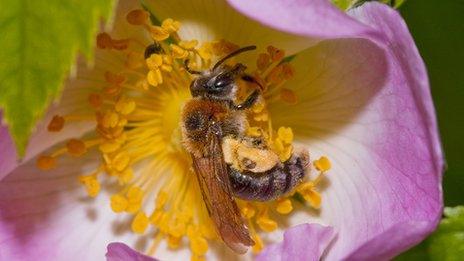
- Published29 April 2013
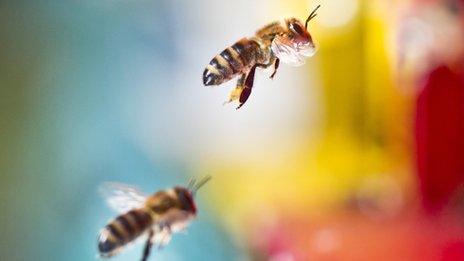
- Published10 September 2013
